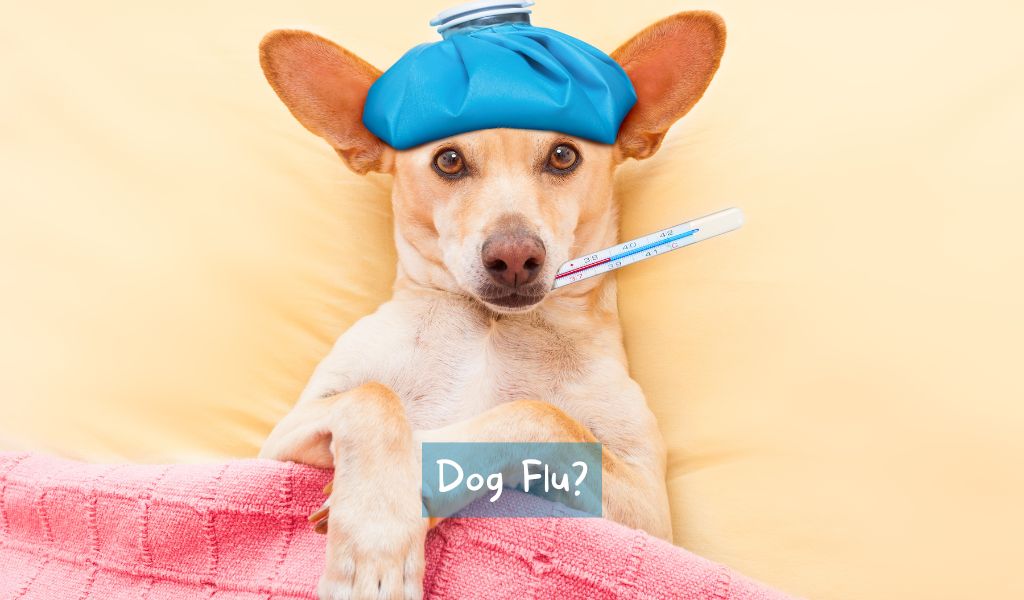Just like humans, dogs can become unwell with a variety of illnesses and ailments.
One of the most common illnesses that dogs can contract is a respiratory infection, often referred to, in human terms, as a “cold.”
But is it the same thing as a cold in humans? In this blog post, we will explore the symptoms, causes, and treatment options for canine respiratory infections.
Yes, dogs can indeed get colds. While the symptoms may be similar to those experienced by humans, canine colds are usually more severe and can cause coughing and sneezing, as well as a runny nose and watery eyes. Canine respiratory infections can also cause difficulty breathing, fever, loss of appetite, fatigue, and depression. Other symptoms may include coughing up blood or phlegm, vomiting, and a decrease in energy and activity levels.
What are the symptoms of a cold in dogs?
Dogs that have a respiratory infection may exhibit symptoms such as a runny nose, coughing, sneezing, and fever.
They may also have difficulty breathing and show signs of fatigue or lack of appetite.
It’s important to note that these symptoms can also be caused by other illnesses, so it’s important to consult with a veterinarian for a proper diagnosis.

What causes respiratory infections in dogs?
Respiratory infections in dogs can be caused by a variety of factors, including viruses, bacteria, and allergens.
Canine parainfluenza, canine adenovirus, and Bordetella bronchiseptica are some of the most common viruses that can cause respiratory infections in dogs.
Bacteria such as Mycoplasma can also cause respiratory issues in dogs, and environmental factors such as dust, mould, and smoke can aggravate respiratory infections.
How are respiratory infections in dogs treated?
Treatment for canine respiratory infections will depend on the underlying cause of the infection.
A veterinarian may prescribe antibiotics if a bacterial infection is suspected, or antiviral medication if a viral infection is the cause.
Supportive care such as humidifiers, rest, and proper nutrition can also help the dog recover from a respiratory infection.





Prevention
The best way to prevent your dog from catching a cold is to keep their living environment as clean and dust-free as possible, regular vaccinations, and to keep them away from other dogs that may be sick.
Maintaining a healthy diet is essential for keeping your dog healthy and free from respiratory infections.
A balanced diet of high-quality proteins, fats, carbohydrates, vitamins, minerals, and fibre will help support the immune system to help prevent illnesses.
Additionally, feeding your dog fresh food instead of processed foods can give them the optimal nutrition they need to stay healthy and strong.
Preventative measures ?
A balanced and healthy diet provides your dog with the right nutrients to fight infections
Healthy weight and regular exercise keeps your pet fit and less likely to succumb to a ‘cold’
Keeping up with vaccinations, worming and flea treatment schedules reduce the risks of ill health in your dog
Final Words
Respiratory infections, also known as “colds,” can be caused by a variety of factors, including viruses, bacteria, and allergens.
These infections can be severe and can cause coughing, sneezing, a runny nose, difficulty breathing, fever, loss of appetite, fatigue, and depression.
It’s important to consult with a veterinarian for a proper diagnosis and treatment plan if your dog appears to have a ‘cold’.
Preventative measures such as regular vaccinations and maintaining a healthy diet and living environment can help reduce the risk of your dog developing a respiratory infection.
Taking care of your pup’s health is essential for their long-term well-being, so be sure to look out for any signs of illness or discomfort and seek immediate veterinary attention if needed.










